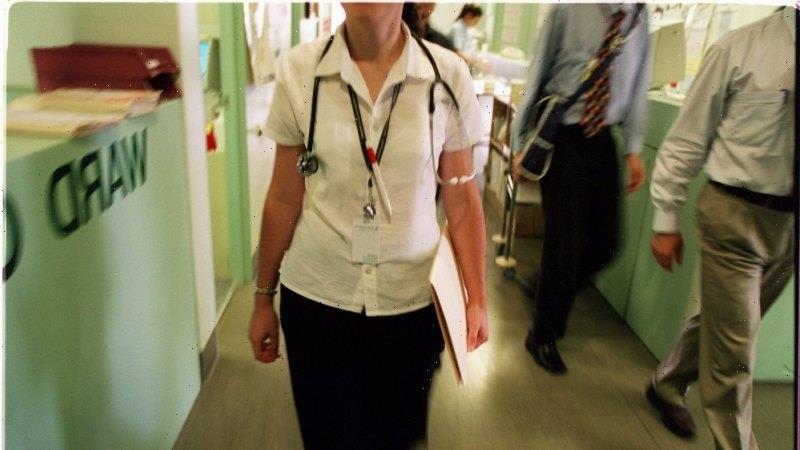For our free coronavirus pandemic coverage, learn more here.
The WhatsApp group for the Australian Medical Association’s NSW council is in full flight. Exhausted, scared doctors from across NSW are sharing their concerns for their communities. Overworked surgeons from western Sydney are trying to work out how they can train in vaccination and head to western NSW to help. Paediatricians are sharing concerns about children across the state, particularly our most vulnerable children in Indigenous communities.
Doctors on the frontline. Credit:Fairfax Media
GPs are sharing their exhaustion of caring for patients and trying to beg and plead with those Sydneysiders still waiting for Pfizer, to choose AstraZeneca instead. This conversation is the front line of what is happening in every general practice, every private practice, every hospital in NSW.
Eighteen months ago, we were prepared for a COVID crisis. As case numbers soared in countries around the world and the death toll climbed higher and higher, we reacted quickly. We closed the borders, bolstered stocks of personal protective equipment, bought ventilators, locked down, stayed home, washed our hands, used hand sanitiser, wore masks and … it worked. We escaped the worst of the first wave, but with our success came a false sense of security.
If we were scared about COVID-19 in March 2020, we should be terrified about its Delta variant in 2021.
We know Delta is far more contagious than earlier strains. Data from overseas suggests the Delta strain is associated with higher rates of hospitalisation and deaths. We are starting to see similar patterns here. The number of COVID cases in hospital is rising and not just among adults – we are also starting to treat more children in hospitals.
We have an excellent healthcare system in NSW, but it was strained even before COVID. To deal with the mounting pressure from the pandemic, hospitals in Greater Sydney have started implementing COVID-surge plans. This means other services are being cut back. There are a finite number of ward beds, intensive care beds and a fixed number of nurses and doctors. When care is directed to COVID, it is diverted from other parts of the system.
Elective surgery has been suspended. The health implications of these decisions for patients awaiting non-urgent surgery are significant. Non-urgent does not mean “not important” or “not painful” – it just means “not right now”. And for those who have already been waiting months, or in some cases years, a further delay is devastating and potentially dangerous.
If we don’t get on top of the COVID outbreak in Greater Sydney, our hospitals will struggle to cope. If COVID runs rampant in rural and regional NSW, I’m concerned healthcare services there will be overwhelmed.
Turning patients away from care is heartbreaking for healthcare workers. So is watching people die in hospital unable to be comforted by family and friends. So is worrying that you will become infected with COVID while caring for others and unknowingly take it home to your own family, or back to work to your colleagues and patients. This is already happening, and this is what keeps doctors awake at night.
During the first wave of COVID, we asked you to stay home, and it worked. We need you to do it again. I know it’s hard. Like many of you, I live alone. Like many of you, I am separated from my partner, my family and my friends and desperately want to see them.
But we don’t need to be locked away in our homes forever. We have vaccines that will protect us from hospitalisation and death resulting from COVID. Getting vaccinated is the only way we will get back to life without restrictions. It is the only way we will get hospitals being able to provide care for all patients. It is the only way we will get back to healthier, better lives.
To allow vaccines time to work, we need to get numbers back under control. So please, stay home to buy us a little time until vaccines let us get back to a more normal life.
Unlike 18 months ago, we have vaccines that will reduce the severity of illness and death. Unlike 18 months ago, we do not just have fear. We also have hope. Together, we can do this.
Dr Danielle McMullen is the NSW president of the Australian Medical Association.
Most Viewed in National
From our partners
Source: Read Full Article

